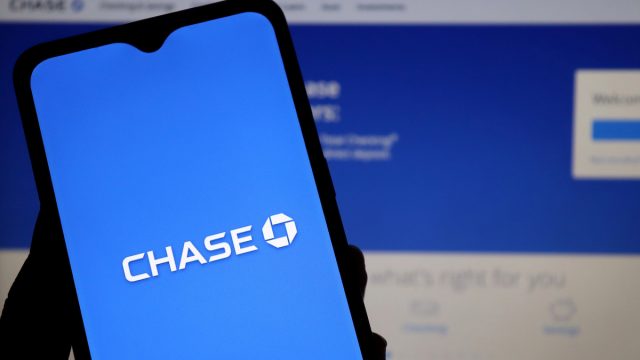Chase Slammed for “Unconscionable” Fees on Customers Who “Did Nothing Wrong”

The U.S. Federal Trade Commission (FTC) estimates that consumers spend “tens of billions of dollars” annually on hidden charges and bogus fees. In banking, these mysterious charges are often referred to as junk fees and can come in the form of late penalties, inactivity fees, out-of-network ATM fees, overdraft fees, and money transfer fees. But JPMorgan Chase customers are sounding the alarm about another kind of fee that could impact your finances at no fault of your own.
RELATED: Bank of America Warns About Massive Data Breach Affecting 57,000 Customers.
In a proposed class action filed on Feb. 20, five Chase customers accused the financial institution of “unfairly” withdrawing $12 from their accounts under the guise of “deposited item returned fees,” after checks they wished to deposit unknowingly bounced, as Forbes reported.
According to Chase’s Personal Banking page, banks are required by law to clear the first $225 of a personal check by the following business day. However, the process can be delayed if extra verification steps are needed. In the scenario of a bounced check, the reason typically falls on the person who cut the check.
Common examples of why a check bounces can vary from there being insufficient funds in their account to an illegible check to a check being linked to a closed or frozen account, per Time. Sometimes it’s as simple as jotting down the wrong routing, account, or check number, too.
Those affected by Chase’s hidden “deposited item returned fees” argue that when a payment bounces due to one of the aforementioned reasons, it shouldn’t fall on the shoulders of the recipient. Instead, it should be on the benefactor to make it right.
In the suit, the customers elicited the jargon of an October 2022 U.S. Consumer Financial Protection Bureau bulletin, in which “junk fees for unexpected or unwanted services” were labeled as “illegal.”
Furthermore, they said Chase’s “junk fees” for bounced checks were “unconscionable” and “predatory.”
“By charging these deposited item return fees, Chase unfairly targeted its customers with financial penalties for faulty checks the customers had no hand in issuing,” said the complaint, per Forbes. “They did nothing wrong, yet were penalized.”
Enforcing such fees is “a persuasive and unfair industry practice,” their lawyer Lisa Considine stated.
A spokesperson for JPMorgan Chase declined to comment, except to note that the bank stopped charging the $12 fee in Dec. 2022
Those in the lawsuit claim they were charged the hidden fees between Nov. 2021 and Oct. 2022, before the fee’s dissolution.
The customers are seeking at least $5 million in damages for Chase customers nationwide.